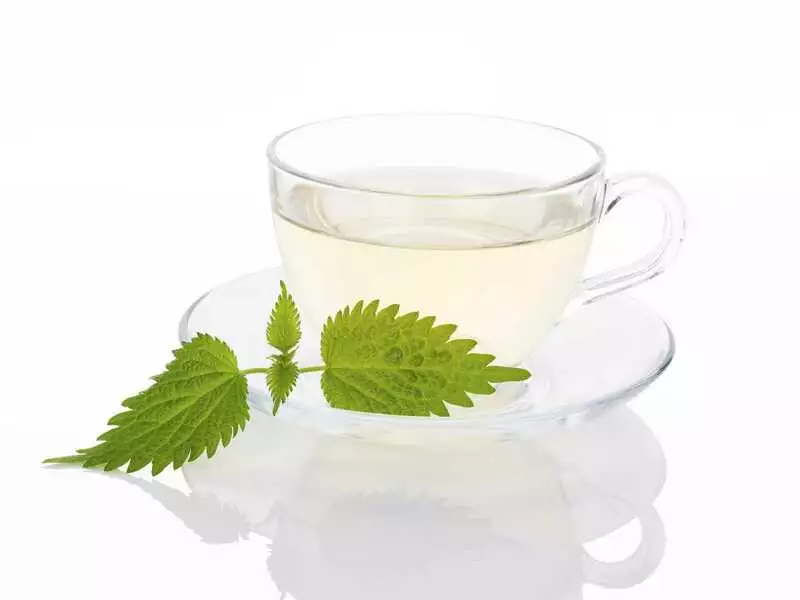A mysterious green powder that has become very popular recently is matcha. It is drunk in lattes, teas, smoothies, shakes with matcha and added to various dishes. What exactly is it and why is it worth trying? The answer, as usual, below.
What is matcha?
Matcha is made by powdering the dried leaves of Camellia sinensis - the so-called Chinese tea. It originated in Japan, where it has served as a traditional beverage for centuries. It is grown slightly differently to ordinary green tea - about 25 days before harvesting, the plants are covered so that they do not come into direct contact with the sun. This results in increased production of amino acids and chlorophyll, to which it owes its distinctive, intense green colour.
Why drink matcha?
-
High antioxidant content
Matcha has an incredibly high content of catechins, which act as natural antioxidants. According to ORAC (Oxygen Radical Absorbance Capacity), which measures the antioxidant content of food, matcha has as many as 1384 units per gram - 125 times more than spinach! This is important because antioxidants stabilise free radicals, which can damage cells and cause chronic disease. In addition, they counteract ageing!
-
Good energy and improved brain function
Thanks to the effects of caffeine (there is as much as 70 mg of it per 2 grams of matcha!) and l-theanine, this green tea provides us with energy in a more stable and prolonged way than coffee or energy drinks. It does not cause nervousness and anxiety, which are often caused by coffee. What is more, this tea helps us to concentrate. In particular, thanks to l-theanine, of which there is 5 times more in matcha than in ordinary tea. It promotes the production of alpha waves in the brain, which bring a feeling of relaxation and improved focus. After all, matcha was originally used in Japan as an infusion to accompany meditation! Additionally, l-theanine can support learning and memory skills.
-
Helpful for weight loss
Trying to lose weight? Matcha can be helpful here too! It is no coincidence that green tea extract is present in the ingredients of most supplements designed to support us in losing weight. The great ingredient in matcha is epigallocatechin gallate, which causes an increase in cholecystokinin levels. Cholecystokinin is the hormone responsible for our feelings of fullness, so it can help us to stop snacking between meals, which, as is well known, is the bane of those trying to lose weight. What's more, matcha speeds up our metabolism and promotes fat burning. Studies make it clear - taking green tea extract during exercise increases fat burning by up to 17%! The detoxifying effect of matcha can also be mentioned here - thanks to the chlorophyll present in it, harmful chemicals and heavy metals are naturally removed from our body.
-
Protection for the liver
The liver is the largest of our organs. Its role is to absorb and neutralise the different types of poisons present in our body. According to research, matcha can have a very positive effect on it! An analysis of 15 tests showed that regular drinking of green tea reduces the risk of liver disease. Nevertheless, further research is needed in this area, as previous studies have mainly been conducted on animals.
-
Good for the heart
What is the most common cause of death? Nothing other than cardiovascular diseases. It is said that more than ⅓ of the population over the age of 35 dies from them. So it is important to take preventive measures against them. Matcha can come to the rescue. It lowers levels of triglycerides and so-called bad cholesterol, which are what cause serious heart disease. In addition, green tea prevents the oxidation of bad cholesterol, which also has a preventive effect on heart-related ailments. However, we should remember that green tea is not everything. In order to have a healthy heart, a healthy and balanced diet and regular physical activity are key.

Green tea, mint, photo: panthermedia
-
Resilience
Matcha also has a wonderful effect on our immunity and prevents viral and bacterial infections. It owes this to the presence of epigallocatechin gallate. It binds to the cells present in our body and prevents the growth of many harmful micro-organisms (e.g. influenza virus, hepatitis virus or herpes virus).









